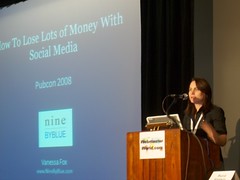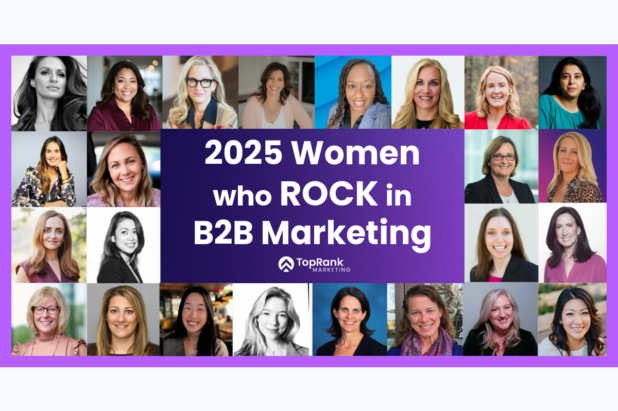Have you considered developing content specifically to drive traffic from social media sites? Have you also considered what you want from that social media traffic, and what to do with it once you have it?
In a session titled, “Earning Big Bucks with Social Media Traffic“, Social Media Marketing advocates including Rank Fishkin, Vanessa Fox, Michael Gray and Alexander Barbara gave some great tips to drive traffic via social media channels and how to monitize that traffic.
Michael Gray kicked off the session discussion how making a connection within the social media world is key to drive traffic to your website. Michael stated that monetizing social media traffic is harder than most other types of traffic and you should only try to make money from this type of traffic if you truly grasp the concept of social media and monetization.
First off, don’t break the rules!
- understand the written and unwritten rules of the community
- know the communities tolerance for sales promotions
Get involved in the social community before you start to market to users.
Michael offered three tips to help business successfully integrate into a social community.
1. Create a knowledge resource:
- create valuable content that is helpful and solves a problem
- offer free solutions
- up-sell only premium products or services
2. Use social media to promote a review:
- compare similar products from different vendors
- works best with new or leading edge products
- keep reviews honest
- be in-depth but avoid TLDR posts
3. Use social media to build memberships:
- use blogs, twitter, and email to create a group of loyal followers
- feed them information with the occasional sales pitches
Twitter can also be leveraged as a way to drive traffic to your site. Michael made the recommendation to design your Twitter campaign around a deal or give a sense of urgency, an example being Woot or Amazon MP3, as this type of campaign has been more successful at driving traffic.
So, what works and what doesn’t work to market within the social media realm?
What Works:
- information resources
- reviews
- problem solving
- deals
- time sensitive offers
What Doesn’t Work:
- direct product links
- hard sell
- mass goods that aren’t unique
- no information value ad
Next up is Alexander Barbara giving advice on how to create content and manage traffic for social media sites such as Digg.
With social media, the bottom line is that your campaigns will be more successful if you create content that speaks specifically to the community audience.
Before you try to promote your site on digg, the first thing you should know is if your site can handle the traffic of being on the first page (what would 200,000 visitors do to your website server?).
The quality of traffic will vary for each social media channel. Sites such as Digg, and Twitter may help you reach a more targeted audience, while StumbleUpon and other niche sites such as Hugg drive non-targeted traffic.
Alexander gave some advice for creating, managing and converting social media traffic:
- understand your audience and create content that appeals to that audience
- choose wisely about your monetization strategy, think about how the traffic will respond to ads
- be prepared for the traffic, if you can’t handle it, you can’t monetize it.
Vanessa Fox took a different approach to social media traffic, providing insight on how to lose lots of money with social media.
If you are a large brand spending a lot of money to develop a ‘viral’ campaign, you may be losing a lot of that money if your content can’t be found.
How search impacts social media:
First thing people do for an offline campaign is to search for more information online. 2/3 of searchers are driven to perform a search online as a result of exposure to offline advertisement.
What does this mean? If you don’t appear in the results during the information search, you don’t exist to that searcher.
Word of Mouth Search
If you spent money to develop a viral campaign and it ‘spreads’ via word of mouth, which helps to drive and increased number of searches for your campaign, but you aren’t actually resulting for the main keywords, what went wrong?
Did your campaign go against the search rules to help you actually get found?
- did you use text, search engines can’t read images (or flash)
- do you have an html version of your site for search engines
- did you include a description or meta tag
- are your title tags descriptive
Metrics and engagement
Anytime you embark on a social media campaign, you must identify your:
- Objective
- Goals
- measurement for success
- adjustment plan
The whole point of social media is engagement, abandoning your community mid campaign will deter the audience from further engagement
Metrics Options:
- views
- qualified visitors
- increased sales
- increased brand awareness
Vanessa wrapped up the session stating that it’s not enough to just have traffic, you have to have qualified traffic. In addition, having a call to action and compelling value proposition is key to making your campaigns worthwhile.
Final thought: measure at each stage of your process to identify where the fail points are.
Check back with the TopRank Marketing Blog for more blog coverage of Pubcon 2008 and the Pubcon photosset on Flickr.



